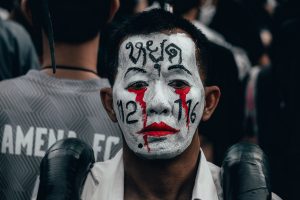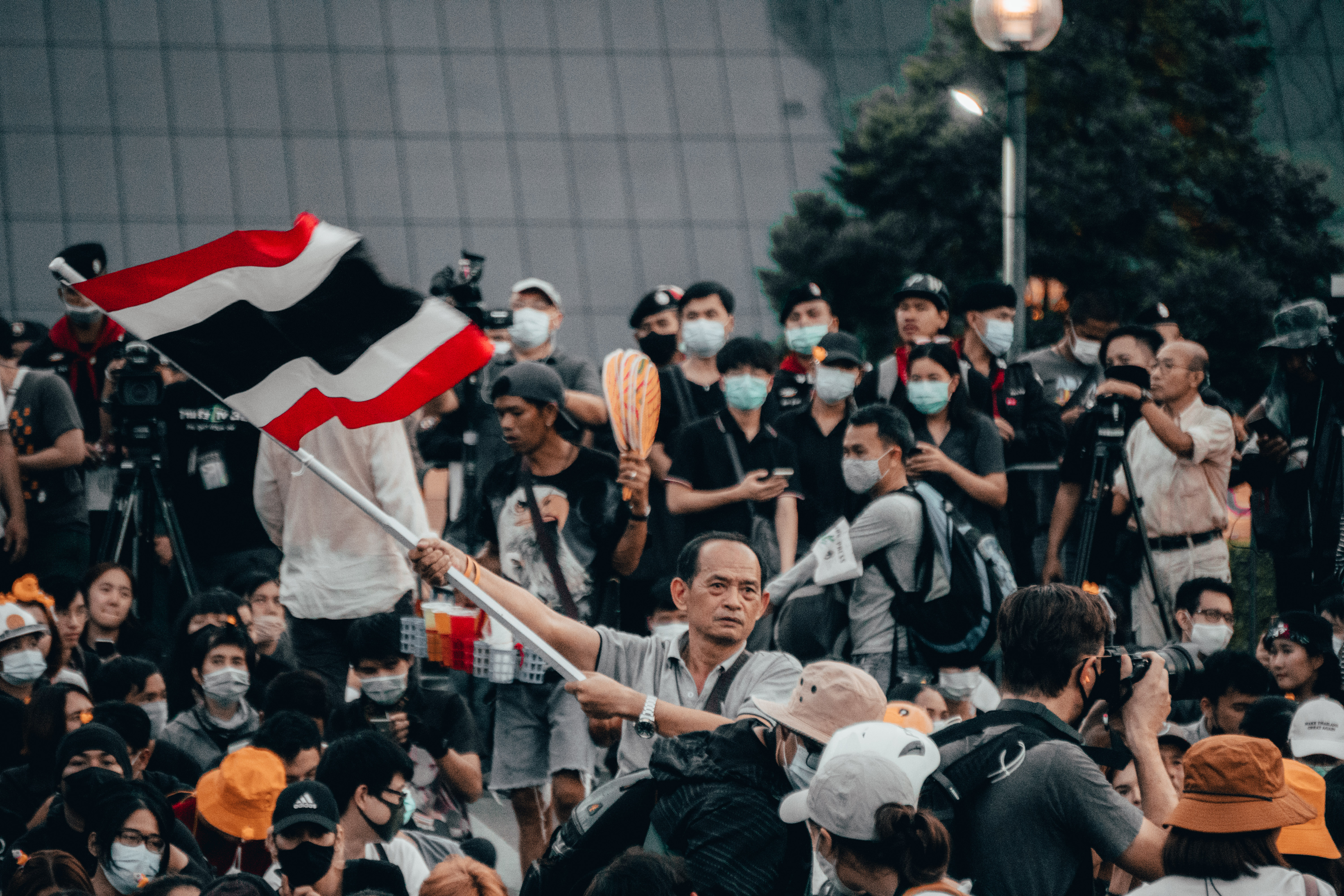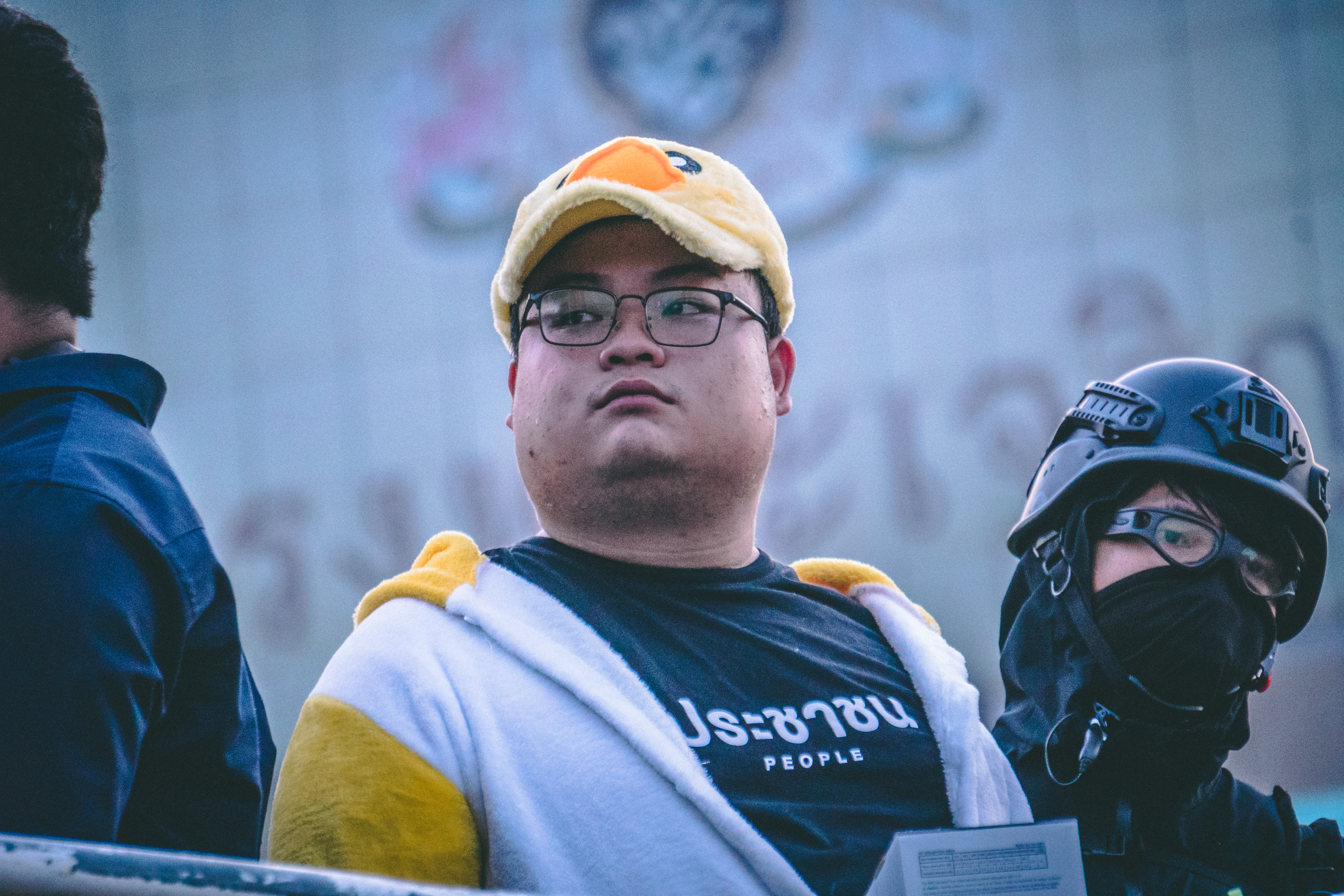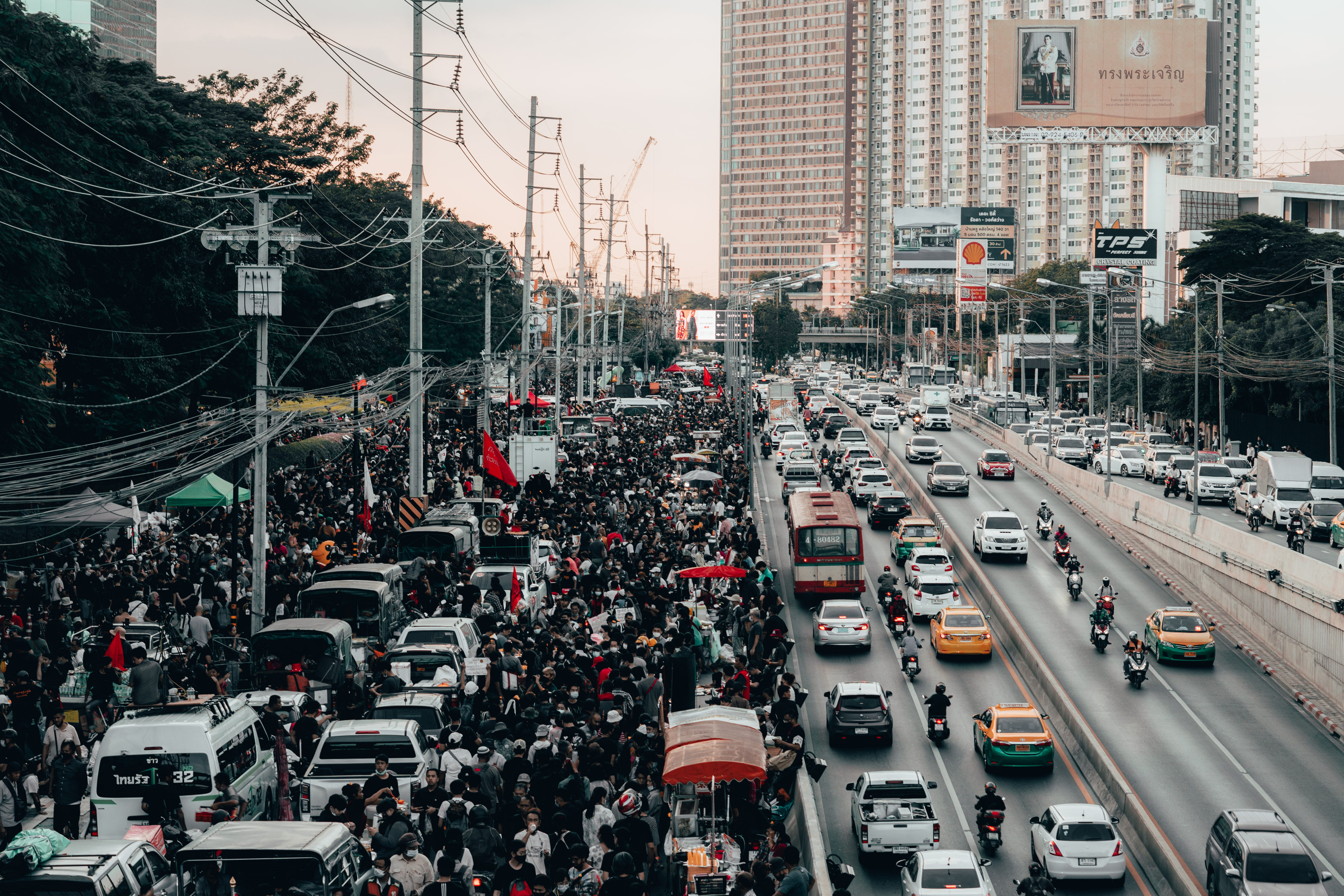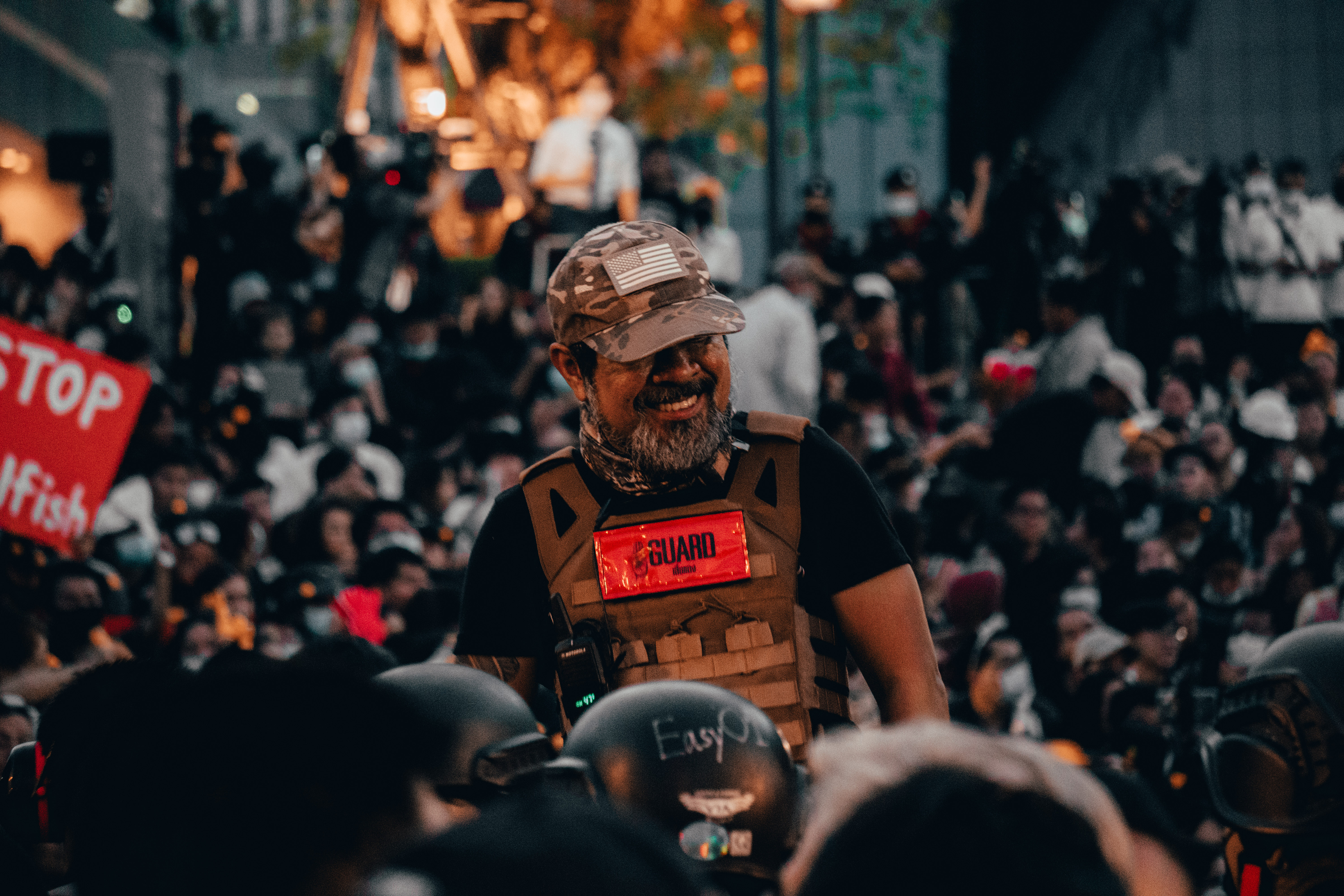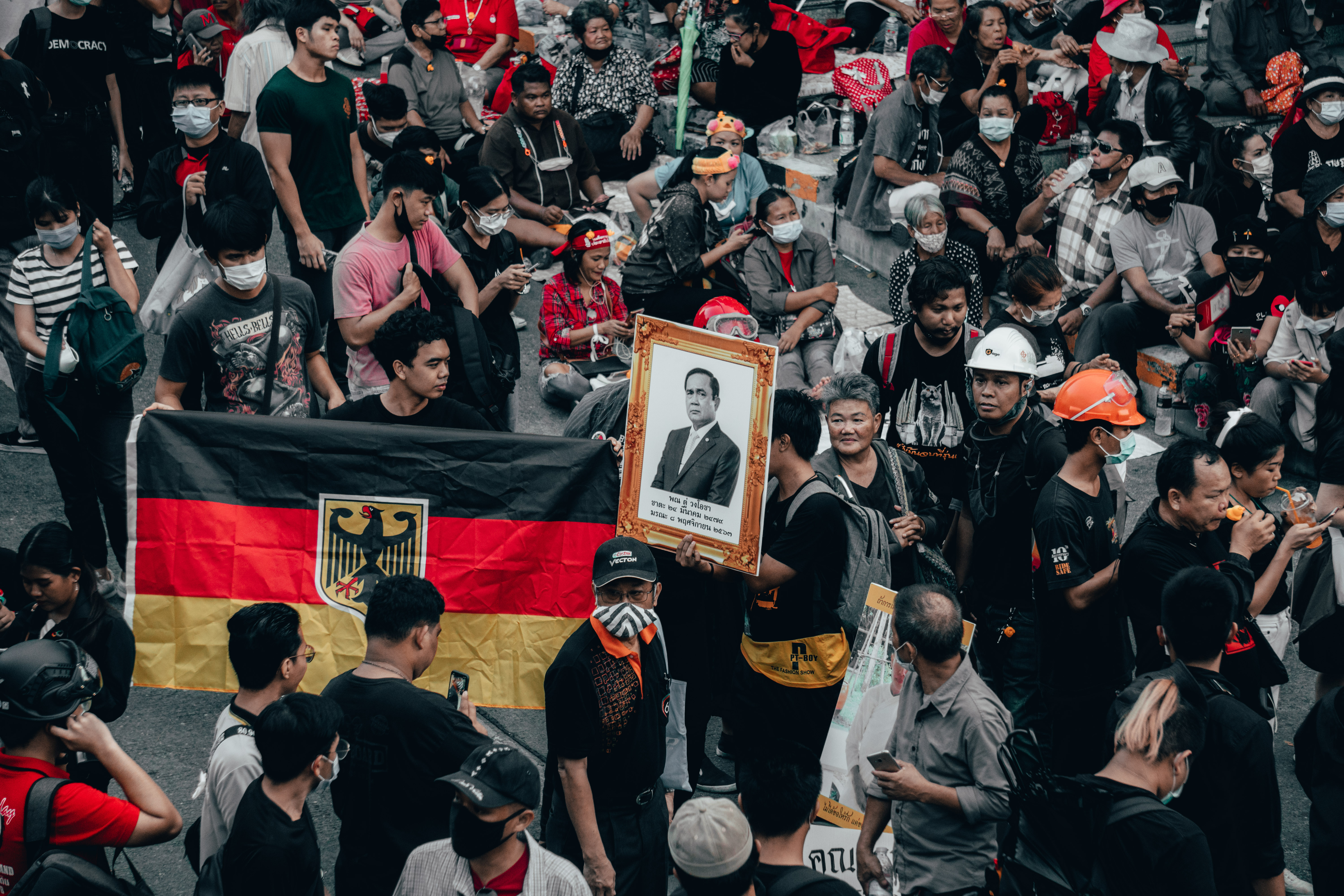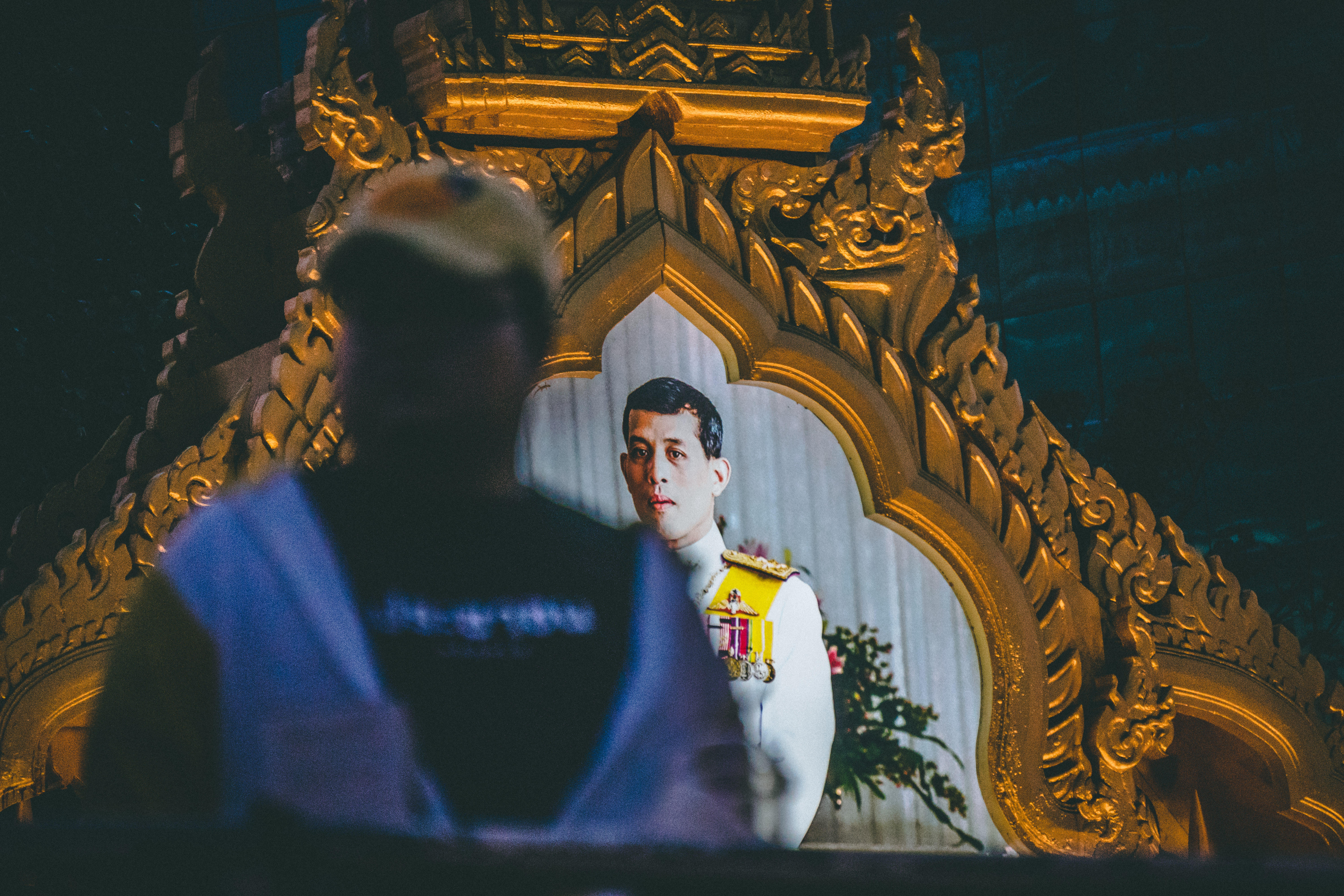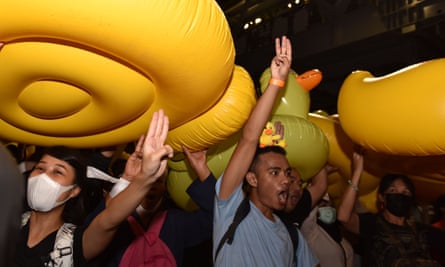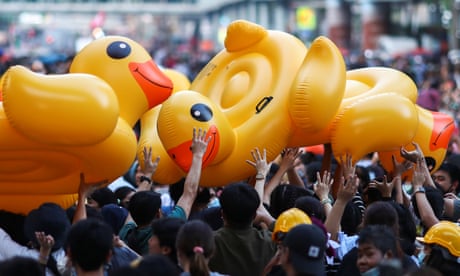The success of the ongoing struggle for democracy in Thailand is crucial for securing peace in its southern regions.
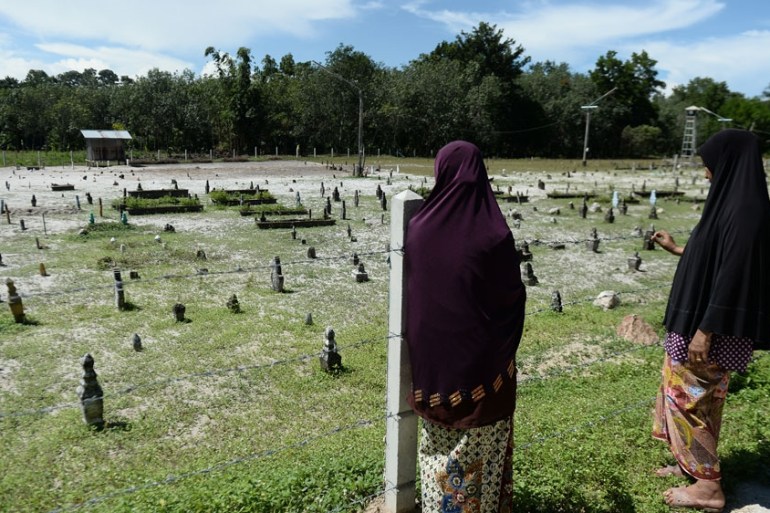
In this photo taken on October 24, 2019, widow Sitirokayah Salaeh (R) visits the cemetery in Tak Bai where her late husband Mahamad Lohbako is buried together with other anti-government demonstrators who died during the 2004 Tak Bai incident, in Thailand''s southern province of Narathiwat [Madaree Tohlala/AFP]
In Thailand, what started some months ago as a seemingly minor student movement against the oppressive and anti-democratic practices of the military-led government has developed into a full-blown, nationwide uprising demanding a major upheaval of the predominantly Buddhist Southeast Asian nation’s political system.
Despite strict COVID-19 protocols restricting the right to peaceful assembly and extensive laws penalising dissent, tens of thousands of people are still taking to the streets across the country regularly to demand change. The mostly young protesters have three core demands: the resignation of General Prayuth Chan-ocha’s government to pave the way for fresh elections, the rewriting of the 2017 constitution that entrenches the army’s role in the government, and an end to the systematic harassment and persecution of government critics.
In Thailand, what started some months ago as a seemingly minor student movement against the oppressive and anti-democratic practices of the military-led government has developed into a full-blown, nationwide uprising demanding a major upheaval of the predominantly Buddhist Southeast Asian nation’s political system.
Despite strict COVID-19 protocols restricting the right to peaceful assembly and extensive laws penalising dissent, tens of thousands of people are still taking to the streets across the country regularly to demand change. The mostly young protesters have three core demands: the resignation of General Prayuth Chan-ocha’s government to pave the way for fresh elections, the rewriting of the 2017 constitution that entrenches the army’s role in the government, and an end to the systematic harassment and persecution of government critics.
The protesters’ demands seem to resonate with millions of Thai citizens who have grown weary of military rule. Indeed, in the almost nine decades since the dawn of constitutional democracy in Thailand, a succession of military regimes gradually curtailed the rights and freedoms of Thai citizens, raising questions about the country’s democratic moorings.
Among those who are raising their voices in support of overdue political reforms in Thailand are the Malay Muslims who reside in the provinces of Patani, Yala and Narathiwat, and some parts of Songkhla, collectively known as the country’s “Deep South”.
The Malay Muslim support for the pro-democracy movement is significant for several reasons. It demonstrates that not only the Buddhist majority but also the minority communities in Thailand are longing for greater liberties. Moreover, it shows that the continuing national struggle for a stronger democracy can help bring peace to the restive region.
Thailand’s Deep South has long been devastated by a conflict between the central government and a resurgent separatist insurgency that traces its roots to the annexation of the once independent Sultanate of Patani into the Siamese Kingdom in the late 18th century.
The Thai government’s policies of forced assimilation directed at ethnic Malays and refusal to give the region any meaningful autonomy, coupled with deep poverty and a lack of economic opportunities, resulted in a protracted conflict that threatens both Thailand and the wider region’s stability.
The conflict reached a turning point in 2004, when the Thai security forces violently cracked down on a protest in Tak Bai, Narathiwat, killing some 85 Malay Muslim protesters. According to Human Rights Watch, in the 16 years since the Tak Bai incident, some 7000 people, many of them civilians, lost their lives to the conflict. The intensity of the conflict decreased in recent years, however, the insurgency still disrupts lives and livelihoods in the region and the Thai government’s discriminatory policies against ethnic Malays continue to fuel inter-communal tensions.
Peace talks, under Malaysian facilitation, are in place. But such efforts are proving insufficient in bringing this decades-old conflict to an end.
Sustainable peace cannot be achieved without including the voices of the civilian stakeholders of this conflict in the conversation. Before the 2014 military coup, which brought the current prime minister, General Prayuth Chan-ocha, to power, there were some significant efforts to include civilians in the continuing peace talks. Prior to the military’s takeover of the government, for example, civil society groups held thousands of forums in the region, allowing residents to share their views and voice their concerns about the peace process.
After assuming power, the military stopped these forums, as it suspected they could be used to spark revolutionary fervour among Thailand’s ethnic Malays. Moreover, the military started to treat the peace talks as a tool to manage criminality rather than resolve the deep-rooted social, economic and political problems of the region. All this resulted in people losing trust in the process, and losing hope that their grievances can be addressed through diplomacy.
A peace process can only succeed if it takes into account the perspectives and legitimate interests of all stakeholders. Any process that attempts to push the dominant side’s perspective and demands down the throats of other involved parties is doomed for failure. Sadly, in the ongoing peace process, has been defined by such efforts.
But all is not lost. Recently, the Muslim provincial leaders from the Deep South submitted to the government a realistic proposal for the future of the region covering four key issues relating to governance, religion, economy and social identity/culture.
The proposal, which calls for more autonomy in running the daily lives of Muslim communities in the southern provinces, can be a good starting point for a serious discussion on building peace in the region.
However, such proposals can only bring the region closer to sustainable peace if they are taken seriously by the central government. Indeed, this conflict can only be resolved if the leadership in Bangkok recognises the Malay minority’s right to self-determination, either directly in the constitution or in a law passed by the parliament, and grants this minority community the authority to run their affairs according to their own cultural and religious norms and traditions.
The current military-led government, which appears hell-bent on curtailing the most basic rights and freedoms of not only the Malay minority but the entire Thai population, is unlikely to ever agree to such a move.
This is why the success of the ongoing fight for democracy in Thailand is crucial for the Deep South. Only a democratically elected government can translate the people’s aspirations into policy and finally bring peace to the country’s restive south.
The views expressed in this article are the authors’ own and do not necessarily reflect Al Jazeera’s editorial stance.

Chalida Tajaroensuk
Executive Director of Peoples’ Empowerment Foundation and peace advocate working in Thailand’s Deep South

Gus Miclat
Executive Director of the Initiatives for International Dialogue
28 Nov 2020
